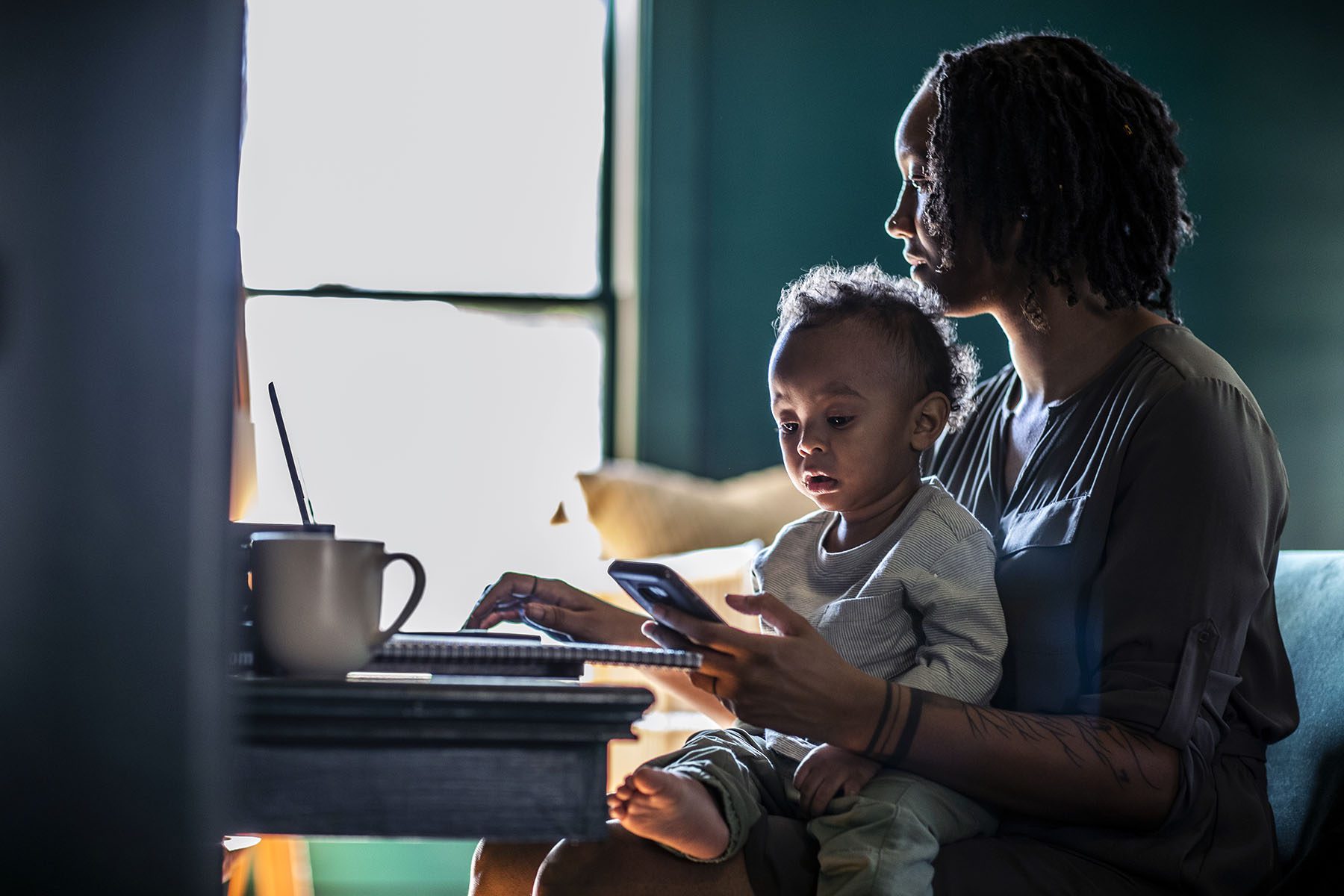We’re answering the “how” and “why” of caregiving news. Sign up for our daily newsletter.
The cost of caregiving on women’s lifetime earnings now has a number: $295,000.
A new report released Thursday by the Department of Labor projects how caregiving for children and parents affects women over the course of their careers, eating into their retirement savings and costing them wages and promotions.
The research projected the lifetime employment costs brought on by unpaid family care for women born between 1981 and 1985, now entering their early 40s, who have already taken on care for their children and will likely care for their parents, parents-in-law and spouses. The estimate is adjusted for inflation and is in 2021 dollars.
These figures, which appear in a report commissioned by the department’s Women’s Bureau, have not been estimated before.
“At some point in our lives we all need care, and women often provide this care in our families. And while family care may be priceless, that does not mean that there’s no cost to those providing it,” said Wendy Chun-Hoon, the director of the Women’s Bureau, during a call with reporters.
The report focused on women because they are the most likely to provide unpaid caregiving: In 2021, 66 percent of women with children younger than age 6 participated in the labor force, compared with 94 percent of men with children younger than 6, according to the Bureau of Labor Statistics. The bureau does not collect any data on nonbinary people.
The numbers are still very likely an undercount, the Women’s Bureau said. Because of limitations in the data, the research excludes care for adults with disabilities and caregiving costs unrelated to employment, such as the cost of day care and the emotional impact of caregiving.
Of the $295,000 figure, 80 percent is attributed to lost earnings due to caregiving and 20 percent is lost retirement income as a result of lower wages. The majority of the loss in wages comes from caring for children. Care for other adults totals only 15 percent of the costs, researchers found, because women are less likely to reduce their employment to provide it.
The impact of caregiving on women’s earnings also varies widely across race, educational background and the number of children a woman has.
The loss in lifetime earnings is higher for mothers who are college-educated, averaging $420,000 in lost wages and retirement savings over their lifetimes. Mothers who completed high school lost $202,000 on average due to caregiving, and mothers who did not complete high school lost $122,000.
More children compounds the issue: On average, employment-related costs amount to $151,000 for mothers with one child, $343,000 for mothers with three children and $464,000 for mothers with five or more children.
The impacts are particularly outsized for Latinas, who are more likely to have more children and work in low-paying jobs with very limited flexibility, the report found. Less pay also means there are few child care options — the average annual cost of child care in the United States is nearly $11,000, which is out of reach for many Latinas. Without access to care, Latinas see their lifetime earnings slashed by 19 percent, the most of any racial group. That figure is 8 percent for Black mothers, 15 percent for White mothers and 14 percent for other groups, which includes Asian American, Pacific Islander and Native Hawaiian (AAPI) mothers. Small sample sizes make it difficult to separate out data for certain groups, including AAPI women.
Black women, who are historically the group of women with the highest labor force participation rate, are the least likely to scale back their employment for caregiving. And so while that amounts to less lifetime lost earnings — $149,000 on average, the lowest of any group — that signals a scarcity of choice rather than economic prosperity.
“It’s more of a story about how Black mothers can’t afford to work less due to things like the wage gap, lower levels of household wealth, all kinds of other systemic inequalities that lead to worse economic outcomes for Black women and for Black families,” said SJ Glynn, senior adviser for the Women’s Bureau. “Even these small reductions can have a really problematic impact when it comes to immediate economic security, and then longer term retirement security.”
It’s likely that care-related employment losses contribute to high poverty rates for elderly Black and Latinx adults, the report found.
Since the pandemic, renewed focus has been put on reducing child care costs for families and recognizing the caregiving roles that women play. The first women’s recession occurred during the pandemic specifically because, due to the closure of child care centers, women left their jobs to care for children full-time.
Since then, the country has tried to pass a comprehensive child care plan that would overhaul the industry, and though that plan failed, other long-stalled legislation has passed. A one-time expansion of the child tax credit passed in 2021 after decades of inactivity. The Pregnant Workers Fairness Act and the PUMP Act, two pieces of legislation designed to protect mothers at work, also passed years after they were first introduced. And earlier this year, President Joe Biden built in a first-of-its-kind child care requirement for businesses seeking large federal subsidies and signed a slate of executive orders aimed at lowering the cost of child care and elder care.
And yet, quality child care remains inaccessible for most parents. Women still see a wage gap, earning 77 cents compared to every $1 earned by White men, and women of color are still consistently the furthest behind. All of those are historic problems that, without targeted legislation, will continue to hurt the economy, Chun-Hoon said.
“Gender and racial inequality combined with our nation’s lack of care infrastructure and work/family policies … harms women, not just in the short term, but in the medium- and in the long-term,” she said.






